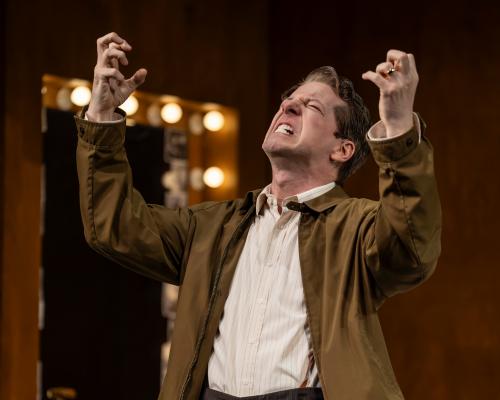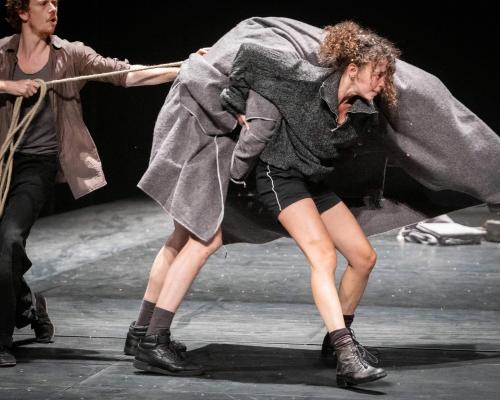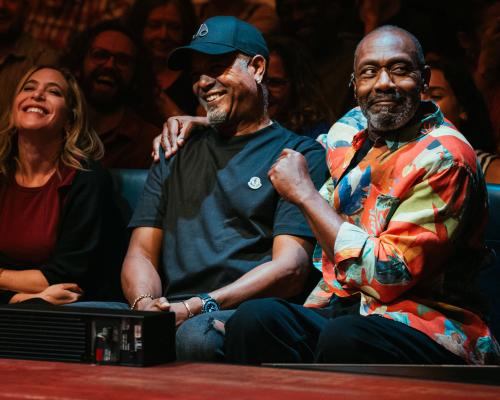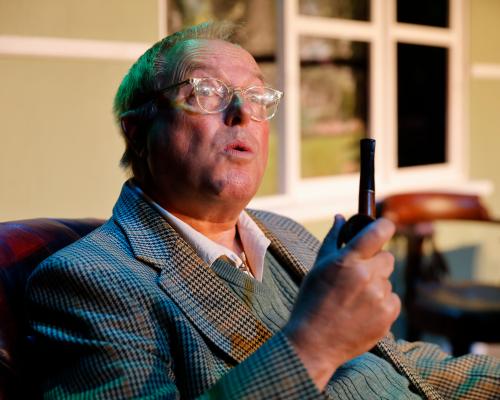
There is a small set of stage plays in which the younger, upstart medium of television is the hero: Peter Morgan’s Frost/Nixon, James Graham’s Best of Enemies and Aaron Sorkin’s The Farnsworth Invention. This genre is swelled by Doug Wright’s Good Night, Oscar, a 2024 Broadway success now transferring, with some English cast substitutions, to London. In common with the Morgan and Graham dramas, it is set around a notable television interview.
The early realisation in TV that millions of viewers would happily sit on sofas to watch celebrities chatting on chairs meant that the role of talkshow host – Jack Paar, Johnny Carson, David Frost, Michael Parkinson – soon evolved a breed of alpha guests: Peter Ustinov, Kenneth Williams, Robin Williams and, in America, Oscar Levant, a classical pianist and movie supporting actor (An American in Paris) who became a waspish and risque late-night anecdotalist.
Wright imagines a 1958 encounter between Paar (Ben Rappaport) and Levant (Sean Hayes), in which, just before a ratings-crucial broadcast, the presenter discovers that his star guest, who will also play out the show at the piano, has recently been committed to a mental health facility. Scenes of off-air and on-air tension alternate.
As in the 1996 movie Shine – also turning on whether a psychiatric patient will succeed with a complex piano piece – there is a risk of glorifying the myth that men (as they generally are) with identified conditions can do much what they want. Also, in a play that explicitly hymns integrity and honesty in the entertainment industry, it feels queasy that the events depicted in Good Night, Oscar never occurred as shown.
Levant was once released from a mental health facility to guest on a quiz show but the play’s fictional transference of this incident to The Tonight Show on its first transmission from the west coast injects false jeopardy and adds to a sense of moral confusion.
Wright follows the standard stance of stage plays set in television – also found in Sorkin’s screen-about-screen work, The Newsroom and Studio 60 on the Sunset Strip – that a potentially beautiful and influential medium is ruined by greedy and censorious executives. That’s a fair view but in Good Night, Oscar the spoilsport NBC honcho must decide whether someone is physically fit to appear. Audiences encouraged to despise network chief Bob Sarnoff (Richard Katz) for trying to keep a seriously unwell man off air would perhaps soon join calls for the sacking of broadcast bosses who failed in their “duty of care” by allowing such a vulnerable person to broadcast now.
As Levant, Hayes gives a performance of such busyness – twitches, tics, lip curls, cigarette business – that you wonder if the stage has a fast-forward button. He also, in the moment that surely guaranteed his Tony award, delivers the piano climax live at a Steinway with exceptional panache. Lisa Peterson’s slick, whizzy production, co-starring Rosalie Craig as Levant’s wife June, is a thrilling theatrical experience but, perhaps perversely for a play arguing for television to be more serious, does not bear looking at too closely.
• At the Barbican theatre, London, until 21 September






